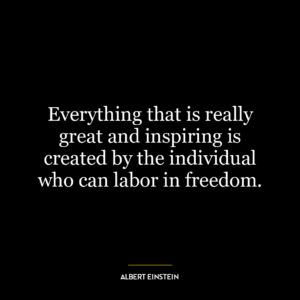This quote suggests that morality, the differentiation of actions between those that are right and those that are wrong, is of utmost significance to humans, but not necessarily to a divine being or God. It implies that our moral codes and ethics are human constructs, designed to guide our actions and interactions within our societies, rather than being inherent universal truths.
Einstein seems to be suggesting that God, being an omnipotent and omniscient entity, is beyond such human constructs. If God is the creator of all things, then God transcends our human notions of right and wrong. From this perspective, morality is a tool for humans to navigate life and coexist peacefully, rather than a set of rules imposed by a divine power.
Applying this quote to today’s world, it suggests that morality is subjective and can vary across different cultures, societies, and individuals. It underscores the importance of empathy, understanding, and respect for diverse perspectives and moral codes. It also implies that our moral compass should guide us in making decisions that contribute to the greater good of humanity, rather than being solely focused on personal gain.
In terms of personal development, this quote suggests that individuals have the power and responsibility to shape their own moral codes. It encourages introspection and active engagement with ethical dilemmas. It also highlights the importance of personal growth and learning in shaping one’s moral compass, emphasizing that morality is not a static concept but something that evolves with experience and understanding.














